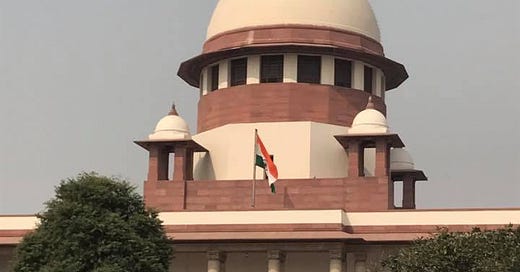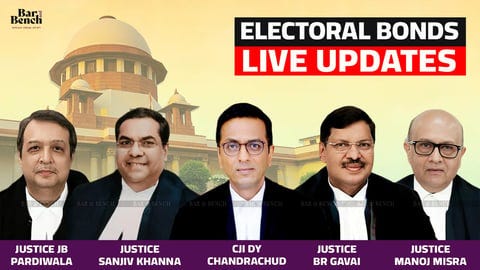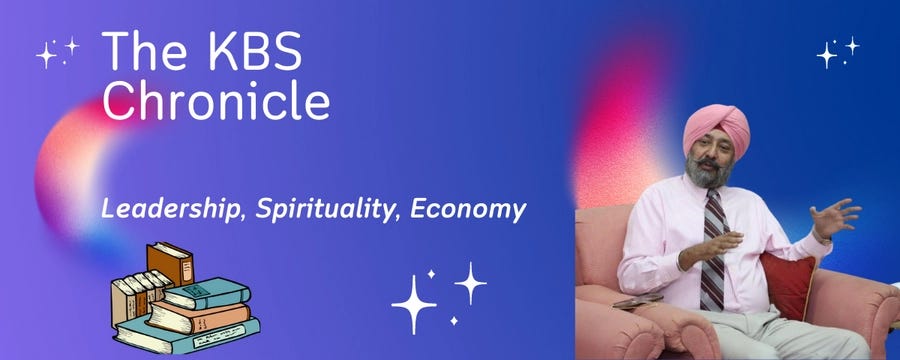{BREAKING} Electoral Bonds Scheme Struck Down by the Supreme Court in a Unanimous (5-0) Verdict
The Apex Court Directs the Publication of the Details of Which Political Party Received Donations, with full particulars.
Unanimous Verdict on Electoral Bonds Scheme
In a landmark decision, the Supreme Court of India, under the leadership of Chief Justice DY Chandrachud, declared the Electoral Bonds Scheme unconstitutional, directing an immediate cessation of its operation. This ruling signifies a pivotal moment in the quest for transparency and accountability in political financing within the country. The 5-Judge Constitutional Bench had reserved its judgement in the first week of November, 2023, after a hearing that had continued over a couple of weeks.
Directive to SBI to Halt Sale of Bonds
Chief Justice Chandrachud mandated the State Bank of India (SBI) to immediately halt the issuance of electoral bonds. In addition to stopping these issuances, SBI is required to provide comprehensive details regarding the political parties that have received funding through this mechanism by March 6. This information is to be made public by the Election Commission of India (ECI) on its official website by March 31, ensuring a new level of transparency in political donations. It has also now become clear that the political parties would be required to refund the amounts received through Electoral Bonds—that remain unencashed—to the purchasers' accounts. A thorough examination of the full judgment will further amplify this aspect. This link will take you to the full text of this judgement.
Directions to the SBI— sole issuer of the Electoral Bonds
Information that SBI needs to provide to ECI regarding ElectoralBonds following the Supreme Court's directions:
Records of Electoral Bonds bought since the Court's preliminary ruling (interim order) on April 12, 2019. This record must cover the purchase date for each electoral bond, the identity of the bond's buyer, and the bond's value.
Information on the political entities that have benefitted from electoral bond contributions from the interim order on April 12, 2019, to the present, to be submitted to the ECI by March 6, 2024.
SBI is required to reveal specifics of the electoral bonds redeemed by the political parties, including the redemption date and the bond's value.
By March 31, 2024, the ECI is mandated to display this information on its official web portal.
Judicial Bench Composition and Presence of Legal Luminaries
The Constitutional Bench, comprising Justices Sanjiv Khanna, BR Gavai, JB Pardiwala, and Manoj Misra, apart from the Chief Justice, delivered this unanimous verdict. The courtroom was graced by the presence of legal heavyweights including Attorney General R Venkataramani, Solicitor General Tushar Mehta, and advocates Prashant Bhushan and Shadan Farasat, underscoring the case's significance.
Consensus and Reasoning
The decision, reached unanimously by the Bench, highlighted a slight variance in the line of reasoning between Chief Justice Chandrachud and Justice Sanjiv Khanna, though both opinions led to the same conclusion. This consensus underscores the collective judicial concern over the scheme's implications on democratic transparency.
Core Issues and Constitutional Violations
At the heart of the petitions against the Electoral Bonds Scheme were questions about its violation of the right to information under Article 19(1)(a) and whether it facilitated unlimited corporate funding that could undermine the principles of free and fair elections. The Bench's deliberation on these issues was crucial in arriving at their verdict.
Importance of Transparency in Electoral Funding
Chief Justice Chandrachud emphasized the essential role of transparency in the electoral process, noting that information about the funding of political parties is vital for voters to make informed choices. This statement reflects a broader judicial recognition of the need for openness in political engagements.
Nexus Between Money and Policy Making
The judgment also addressed the potential for a quid pro quo arrangement, where financial contributions to political parties could unduly influence policy decisions. This acknowledgment points to the judiciary's awareness of the intricate relationships between financial contributions and political power.
Critique of Electoral Bonds Scheme
Chief Justice Chandrachud criticized the Electoral Bonds Scheme for failing to justify its infringement on the right to information. He argued that the Scheme, although aimed at curbing black money in political funding, did not adequately protect the democratic principle of transparency.
Privacy and Political Contributions
The judgment made a nuanced distinction between the privacy of political contributions and the public's right to information. It suggested that while some level of privacy is permissible, the overarching need for transparency in contributions that could influence public policy remains paramount. The Electoral Bond Scheme had afforded complete privacy and anonymity to corporate and HNI donors utilizing this channel, in contrast to ordinary citizens making modest donations exceeding Rs 20,000, who were required to disclose their full KYC details. This arrangement was deemed by the Apex Court to constitute an unreasonable classification.
Striking Down of Amendments and Scheme
In this landmark verdict move, the Court also declared the Electoral Bonds Scheme, along with related amendments to the Income Tax Act and the Representation of the Peoples Act, unconstitutional. This decision underscores the judiciary's commitment to upholding the Constitution and safeguarding democratic values, including the conduct of free and fair elections.
Unconstitutionality of Corporate Political Funding
Finally, the amendment to the Companies Act, which allowed for unlimited corporate political funding, was also struck down as unconstitutional. This part of the judgment highlights a critical concern over the disproportionate influence of corporate entities in the political arena, marking a significant step towards ensuring fairness and equality in political participation.
This comprehensive verdict by the Supreme Court— the details of which are still to be uploaded on the Court’s official website— is more than just a legal ruling; it is a reaffirmation of the principles of transparency, accountability, and fairness in India's political fabric. By examining the intricate relationship between financial contributions and political influence, the Court has established a new precedent for the future of democratic governance in India, while also reaffirming and reinforcing the principle of an independent judiciary, with limited powers of judicial review, as articulated in the Kesavananda Bharati case.
Gist in Justice Khanna’s Judgement:
In the operative part of Justice Khanna’s lucid and concurring judgement we note the following directions.
(i) the Scheme is unconstitutional and is accordingly struck down;
(ii) proviso to Section 29C(1) of the Representation of the People Act, Section 182(3) of the Companies Act, 2013, and Section 13A(b) of the Income Tax Act, 1961, as amended by the Finance Act, 2017, are unconstitutional, and are struck down;
(iii) deletion of proviso to Section 182(1) to the Companies Act of 2013, thereby permitting unlimited contributions to political parties is unconstitutional, and is struck down;
(iv) sub-section (3) to Section 31 of the RBI Act, 1934 and the Explanation thereto introduced by the Finance Act, 2017 are unconstitutional, and are struck down;
(v) the ECI will ascertain the details from the political parties and the State Bank of India, which has issued the Bonds, and the bankers of the political parties and thereupon disclose the details and names of the donor/purchaser of the Bonds and the amounts donated to the political party. The said exercise would be completed as per the timelines fixed by the Hon’ble the Chief Justice;
(vi) Henceforth, as the Scheme has been declared unconstitutional, the issuance of fresh Bonds is prohibited;
(vii) In case the Bonds issued (within the validity period) are with the donor/purchaser, the donor/purchaser may return them to the authorised bank for refund of the amount.
In case the Bonds (within the validity period) are with the donee/political party, the donee/political party will return the Bonds to the issuing bank, which will then refund the amount to the donor/purchaser. On failure, the amount will be credited to the Prime Ministers Relief Fund.







What a BOLD judgement! Far reaching implications are imminent. A right step towards cleansing the corrupt political setup and reviving the crippled democracy.👍